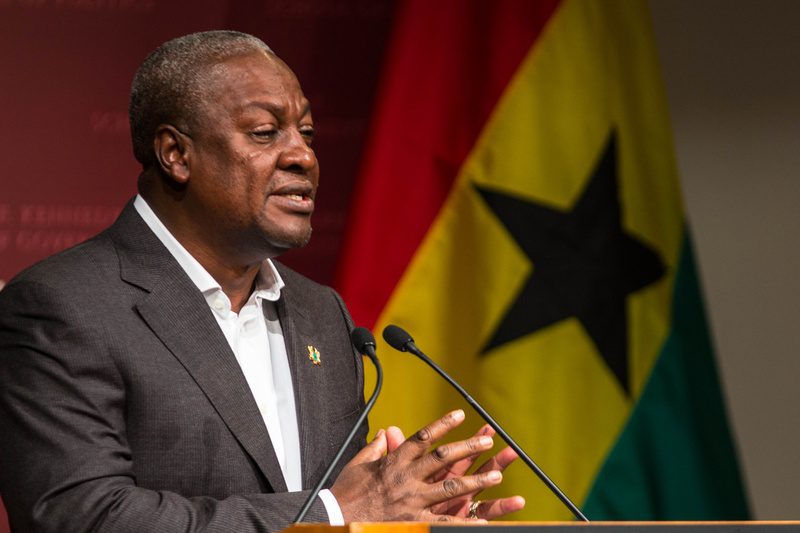President of Ghana John Dramani Mahama described the arrival of a “new frontier” of economic growth and political stability for his Western African country in a speech at the Institute of Politics on Friday.
Opening with a quotation from President John F. Kennedy ’40, Mahama expressed his optimism for Ghana’s future to a capacity audience at the John F. Kennedy Jr. Forum.
“We stand today on the edge of a new frontier…a frontier of unknown opportunities and perils—a frontier of unfulfilled hopes and threats,” Mahama said, echoing then-senator Kennedy’s 1960 speech accepting the Democratic nomination for president.
“That new frontier to which Kennedy was saying was the decade of the 1960s,” Mahama continued. “But those words he used there can just as easily describe the challenges and the opportunities we are facing now, in this current era.”
Mahama described Ghana’s history as the first sub-saharan African nation to gain independence from colonial rule in 1957. The president discussed the extent to which the country has changed since gaining independence, especially emphasizing the dramatic economic and political improvements of the last decade.
“Flash forward ten years to 2012, now it’s ten years of political stability, ten years of fiscal responsibility, ten years of uninterrupted social intervention programs, ten years of investor confidence,” Mahama said.
He also stressed that by 2012, Ghana had been named one of the top five growing economies in the world. Ghana currently ranks thirteenth in the world for real gross domestic product growth rate, according to the Central Intelligence Agency’s World Factbook.
Mahama cited a shifting international view of Africa, especially in recent media coverage aiming to showcase positive developments in the region.
“I’m happy to note that the international media attitude toward Africa is changing,” he said “Before, Africa was mentioned in the media only when there was conflict or there was a famine or an outbreak of Ebola.”
Mahama acknowledged the importance of learning from the past in moving toward the future.
“This is the part where the past imposes itself on the present,” Mahama said. “The past, where you see the beauty and brightness of your destination, but you cannot move forward until you have fixed the problems that for years have been ignored, delayed, or only have [been] addressed.”
After fielding questions from audience members for more than 30 minutes after the conclusion of his speech on topics ranging from the Ebola virus to African travel restrictions, Mahama ended the forum by apologizing for not having more time to talk with attendees.
“I check my email, and I will respond to your questions,” Mahama announced, spelling out his personal email address to all 700 people in attendance.
“Not one [speaker] before [Mahama] has given out their email address,” Kennedy School Dean David T. Ellwood ’75 added to laughter and applause from the audience.
—Staff writer Forrest K. Lewis can be reached at




